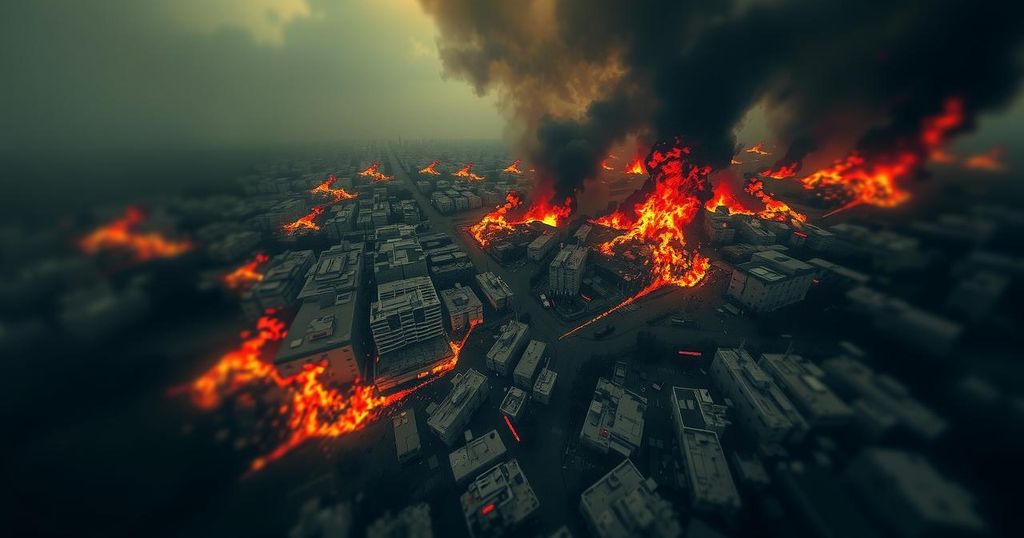Iran’s Perspective on the Hezbollah-Israel Ceasefire and Its Regional Implications

The newly established ceasefire between Hezbollah and Israel, mediated by the U.S. and France, is set to last until January 2025, requiring Israeli forces to withdraw and Hezbollah to reposition its arms. Despite criticisms from some Israeli factions, Iran views the ceasefire positively as it offers a path to consolidate regional influence and address pressing internal issues while reducing the immediate risk of conflict. The potential implications of the incoming U.S. administration further complicate these dynamics, with analysts observing the need for Iran to advocate for a stable ceasefire amidst heightened tensions.
The recent ceasefire established between Hezbollah and Israel, mediated by the United States and France, aims to provide a much-needed pause in hostilities as it moves into effect until January 2025. This agreement obliges Israeli forces to withdraw from southern Lebanon while requiring Hezbollah to reposition its arms and the Lebanese army to mobilize troops to the border area alongside international peacekeepers. Despite Prime Minister Netanyahu’s portrayal of an opportunity to address Iranian threats, right-wing factions within Israel criticized this ceasefire as a strategic blunder that compromises security in the south.
While the Iranian government expressed hesitations about the terms favoring Israel, it remains optimistic regarding the ceasefire’s longevity. Analysts suggest that Iran influenced Hezbollah’s decision to agree to this pause, as continued conflict would have severely compromised both Hezbollah’s capability and Iran’s influence in the region. Additionally, the ceasefire offers Iran an opportunity to devote resources towards addressing other regional conflicts and internal challenges.
From Tehran’s perspective, the ceasefire also serves as a narrative of resilience, showcasing Hezbollah’s ability to compel negotiations with Israel despite significant losses. This narrative will likely be used to reinforce Iran’s regional influence and justify its support for Hezbollah and similar groups throughout the Middle East.
The geopolitical landscape may shift dramatically with the accession of President-elect Donald Trump in January 2025, which coincides with the ceasefire’s expiration. Analysts warn that renewed pressure from the U.S. could provike increased Israeli military actions, intensifying existing tensions between Iran and Israel. Consequently, Iran is likely to advocate for the maintenance of the ceasefire to avoid escalating conflicts that could undermine its broader strategic interests, especially as it pursues potential dialogues with the incoming U.S. administration.
In summary, the recent ceasefire has significant implications for Iran’s regional strategy. Tehran’s backing of Hezbollah is rooted in the necessity to preserve the group’s strength as a deterrent force against Israeli aggression. Moreover, the ceasefire opens pathways for Iran to refocus its efforts on critical geopolitical challenges while minimizing the risk of renewed hostilities ahead of what could be a tumultuous political transition in the U.S.
The Hezbollah-Israel ceasefire, brokered by the U.S. and France, marks a volatile phase in the long-standing conflict between Israel and Hezbollah. The agreement, which requires a cessation of military operations and significant troop movements, reflects broader regional dynamics involving Iran’s influence. Iran, a supporter of Hezbollah, perceives the ceasefire as crucial for maintaining its strategic foothold in the region, given the implications of ongoing U.S. foreign policy and the changing leadership in Washington.
In conclusion, the Hezbollah-Israel ceasefire not only highlights the immediate need for military de-escalation but also underscores the intricate web of power dynamics at play in the Middle East. Iran’s strategy hinges on maintaining Hezbollah’s operational capabilities while navigating pressures from both Israel and the upcoming U.S. administration. The future stability of this ceasefire will depend significantly on how Tehran and its allies manage regional tensions amidst evolving political landscapes.
Original Source: www.newarab.com








